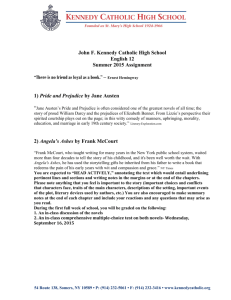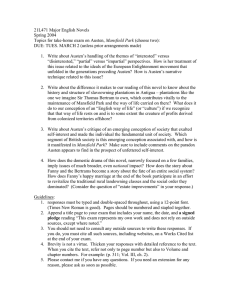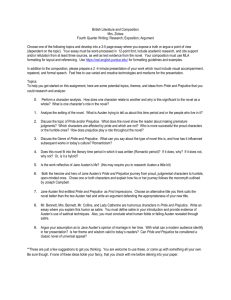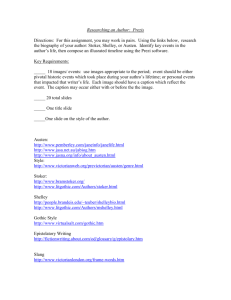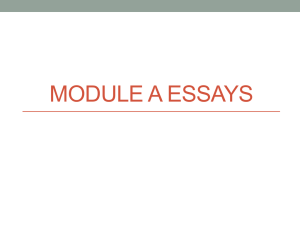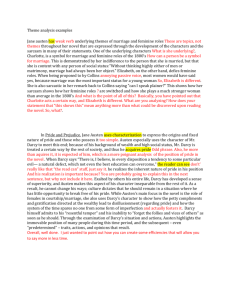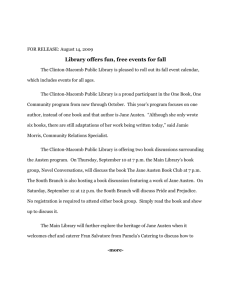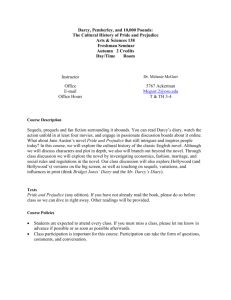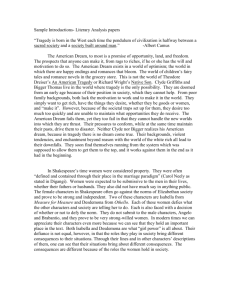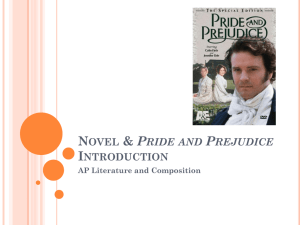Jane Austen, Pride and Prejudice, Winter Semester 2007
advertisement
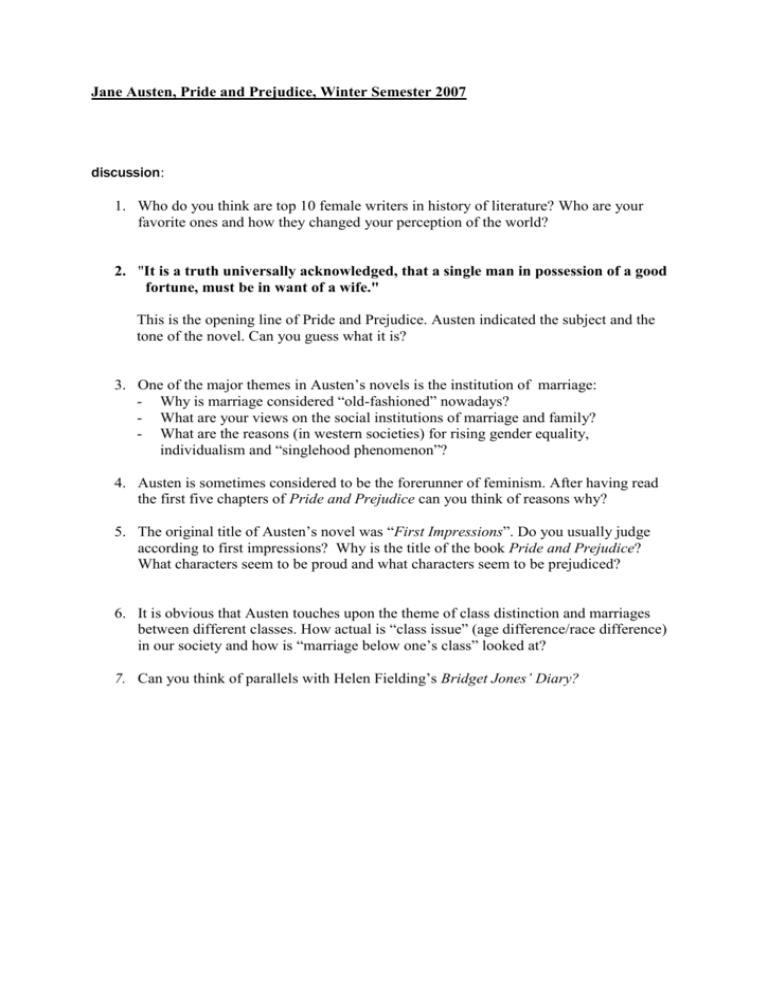
Jane Austen, Pride and Prejudice, Winter Semester 2007 discussion: 1. Who do you think are top 10 female writers in history of literature? Who are your favorite ones and how they changed your perception of the world? 2. "It is a truth universally acknowledged, that a single man in possession of a good fortune, must be in want of a wife." This is the opening line of Pride and Prejudice. Austen indicated the subject and the tone of the novel. Can you guess what it is? 3. One of the major themes in Austen’s novels is the institution of marriage: - Why is marriage considered “old-fashioned” nowadays? - What are your views on the social institutions of marriage and family? - What are the reasons (in western societies) for rising gender equality, individualism and “singlehood phenomenon”? 4. Austen is sometimes considered to be the forerunner of feminism. After having read the first five chapters of Pride and Prejudice can you think of reasons why? 5. The original title of Austen’s novel was “First Impressions”. Do you usually judge according to first impressions? Why is the title of the book Pride and Prejudice? What characters seem to be proud and what characters seem to be prejudiced? 6. It is obvious that Austen touches upon the theme of class distinction and marriages between different classes. How actual is “class issue” (age difference/race difference) in our society and how is “marriage below one’s class” looked at? 7. Can you think of parallels with Helen Fielding’s Bridget Jones’ Diary? Notwithstanding the frothy, lighthearted surface of many of her novels, she always makes it quite clear that the marriage and courtship game was one of great and serious risk for women. Refuse a man's proposal and you might well wind up enduring a lifetime of poverty and humiliating spinsterhood. Austen is best known as a consummate novelist of manners. The author of six novels, Austen depicted a small slice of English life during the Regency period, a time marked by the Napoleonic Wars, the early growth of the English Empire, and an economic and industrial revolution that was countered by a cultural emphasis on all things proper, elegant, genteel, and truly "English." Austen captured this moment in great detail, focusing narrowly on the lives of the landed gentry in rural England and—more particularly—the little triumphs and defeats faced by the young women attempting to secure their future survival through respectable marriage. In such works as Pride and Prejudice (1813), Emma (1816), and Mansfield Park (1814), Austen employed wit, irony, and shrewd observation to advance the literary status of the women's novel and to address the social and political concerns of nineteenth-century men and women. Jane Austen is known for her use of irony, her use of psychological time, which is different than chronological or real time, and for her use of form. She was only moderately successful in her own lifetime because she published anonymously. Because of that, she only celebrated a little bit of success in her lifetime.
